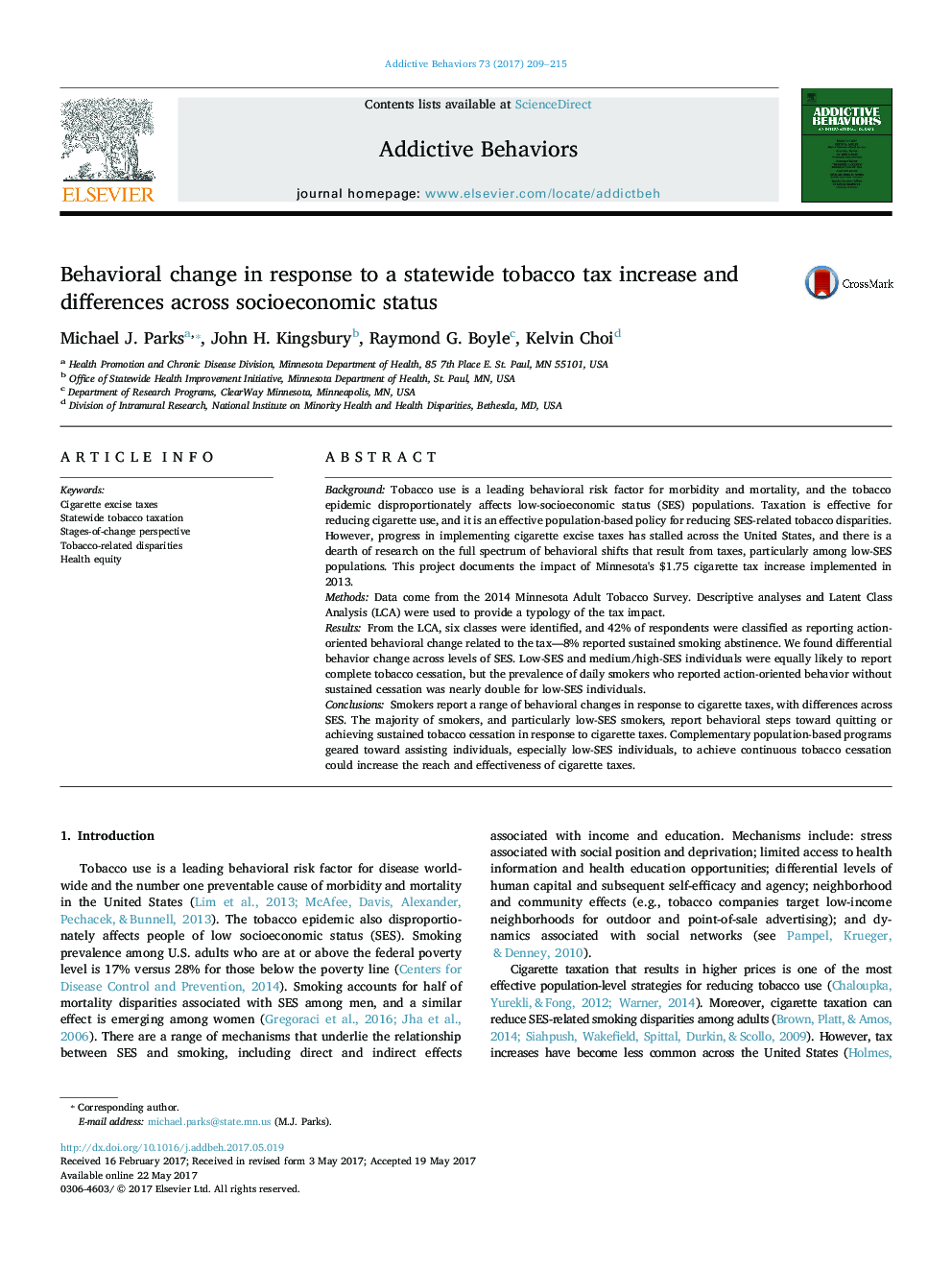| کد مقاله | کد نشریه | سال انتشار | مقاله انگلیسی | نسخه تمام متن |
|---|---|---|---|---|
| 5037580 | 1472498 | 2017 | 7 صفحه PDF | دانلود رایگان |
- We examined survey data to assess the impact of a statewide tobacco tax increase.
- Latent Class Analysis provided a typology of behavioral responses to the tax.
- Over 40% of respondents were classified as taking action-oriented change after tax.
- We found differential behavior change across levels of socioeconomic status (SES).
- Majority of smokers, especially low-SES smokers, report steps toward cessation.
BackgroundTobacco use is a leading behavioral risk factor for morbidity and mortality, and the tobacco epidemic disproportionately affects low-socioeconomic status (SES) populations. Taxation is effective for reducing cigarette use, and it is an effective population-based policy for reducing SES-related tobacco disparities. However, progress in implementing cigarette excise taxes has stalled across the United States, and there is a dearth of research on the full spectrum of behavioral shifts that result from taxes, particularly among low-SES populations. This project documents the impact of Minnesota's $1.75 cigarette tax increase implemented in 2013.MethodsData come from the 2014 Minnesota Adult Tobacco Survey. Descriptive analyses and Latent Class Analysis (LCA) were used to provide a typology of the tax impact.ResultsFrom the LCA, six classes were identified, and 42% of respondents were classified as reporting action-oriented behavioral change related to the tax-8% reported sustained smoking abstinence. We found differential behavior change across levels of SES. Low-SES and medium/high-SES individuals were equally likely to report complete tobacco cessation, but the prevalence of daily smokers who reported action-oriented behavior without sustained cessation was nearly double for low-SES individuals.ConclusionsSmokers report a range of behavioral changes in response to cigarette taxes, with differences across SES. The majority of smokers, and particularly low-SES smokers, report behavioral steps toward quitting or achieving sustained tobacco cessation in response to cigarette taxes. Complementary population-based programs geared toward assisting individuals, especially low-SES individuals, to achieve continuous tobacco cessation could increase the reach and effectiveness of cigarette taxes.
Journal: Addictive Behaviors - Volume 73, October 2017, Pages 209-215
